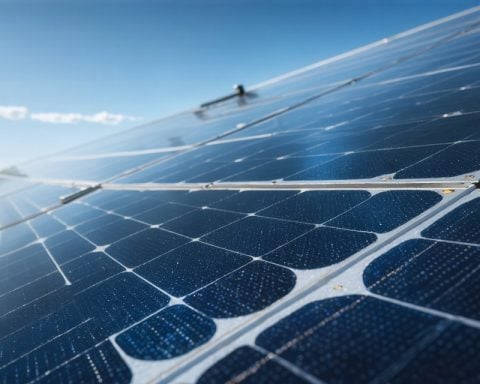The future of battery recycling just took a significant turn as Northvolt, the Swedish electric vehicle (EV) battery manufacturer, has sold its remaining shares in Hydrovolt to the aluminium and energy giant Hydro for NOK 78 million, which is approximately €6.66 million. This transaction elevates Hydro’s stake in Hydrovolt from 72% to a complete 100%.
This pivotal move comes in light of Northvolt’s current financial troubles. Earlier in 2024, the company announced a reorganization plan and sought Chapter 11 bankruptcy protection in the United States, battling several production hurdles, a vanishing major customer contract, and severe funding issues. As part of this restructuring, Northvolt scaled back its operations and halted funding for most of its joint ventures.
Since mid-2024, Hydro has stepped in to cover all financial responsibilities tied to Hydrovolt’s operations, actively pursuing new alliances to foster long-term sustainability for the recycling entity. Although Northvolt has exited as a co-owner of Hydrovolt, the two companies will maintain a collaborative commercial relationship, underscoring their pivotal roles in Europe’s battery recycling landscape.
Founded in 2020, Hydrovolt specializes in developing advanced recycling technologies to maximize material recovery from electric vehicles and industrial batteries. The venture aims to champion a circular economy and provide sustainable raw materials through innovative recycling methods. Hydro, with over a century of resource transformation experience, steadfastly directs its efforts toward sustainable solutions for a greener future.
The Future of Battery Recycling: Implications for Sustainability and Global Economy
The recent shift in ownership of Hydrovolt, following Northvolt’s sale of its shares to Hydro, highlights significant developments in the battery recycling industry—an area that holds considerable promise for environmental sustainability, economic growth, and humanity’s future.
As electric vehicle (EV) adoption continues to rise globally, the demand for efficient battery recycling processes becomes imperative. The recycling of batteries not only helps reduce the environmental impact associated with mining raw materials but also conserves resources and supports the circular economy model. Hydrovolt’s innovations in battery recycling technologies represent a crucial step towards alleviating potential waste crises as the number of end-of-life batteries surges in the coming years.
Environmental Impact
The environmental repercussions of battery production are substantial, owing to the mining processes that extract lithium, cobalt, and nickel—materials essential for battery manufacturing. These processes can result in habitat destruction, water pollution, and significant carbon emissions. By advancing recycling technologies, Hydrovolt is positioned to mitigate these consequences, as effective recycling can recover up to 95% of various materials used in batteries. This not only diminishes the need for virgin materials but also curtails the carbon footprint associated with battery production, paving a way toward a more sustainable manufacturing cycle.
Economic Considerations
The economic landscape is also transformed by this strategic move. Hydrovolt’s expertise in unlocking materials from battery waste can create new business opportunities and jobs in the green technology sector. As governments and industries commit to ambitious climate goals, investments in battery recycling technology present opportunities for economic revitalization, particularly in Europe, which is rapidly transitioning towards a greener economy.
Moreover, Hydro’s full ownership of Hydrovolt may enable more streamlined operations and greater investment in research and development. This could enhance the efficiency of the recycling processes, leading to cost-effective solutions in material recovery that further stimulate economic growth.
Humanity’s Future
The implications extend to the future of humanity itself. As we transition towards renewable energy sources and strive to reduce our carbon footprint, the role of EVs is paramount. A robust recycling infrastructure backed by companies like Hydrovolt ensures that as more consumers adopt electric vehicles, the environmental burden does not outweigh the benefits. Instead, through innovative recycling practices, we can foster a sustainable system that supports both economic and environmental health.
In conclusion, Northvolt’s exit from Hydrovolt signifies both challenges and opportunities within the battery recycling landscape. As Hydro takes a leading role, the potential for a sustainable circular economy becomes increasingly tangible. The future of battery recycling not only promises to enhance material recovery but also serves as a critical factor in ensuring that humanity can pursue its energy transition without compromising the planet’s health. This evolution is vital as we navigate the challenges of resource scarcity and environmental degradation, making responsible recycling practices not just beneficial, but essential for a sustainable future.
The Future of Battery Recycling: Northvolt’s Strategic Shift and Hydrovolt’s Full Ownership
Overview
The landscape of battery recycling is evolving, particularly in Europe, where companies are increasingly focusing on sustainable practices. Recently, Northvolt, a prominent Swedish electric vehicle (EV) battery manufacturer, sold its remaining shares in Hydrovolt to the aluminium and energy giant Hydro for NOK 78 million (approximately €6.66 million). This transaction boosts Hydro’s ownership in Hydrovolt from 72% to a complete 100%, highlighting a significant consolidation in the battery recycling sector.
Market Trends and Insights
1. Growing Demand for Battery Recycling:
The surge in electric vehicle production has led to an urgent need for effective battery recycling solutions. As the EV market expands, so too does the volume of end-of-life batteries requiring processing. Organizations like Hydrovolt are positioned to capitalize on this growing demand, implementing innovative recycling technologies to reclaim materials.
2. Sustainability Focus:
Hydrovolt’s mission aligns with the principles of a circular economy, where waste is minimized, and materials are reused efficiently. The transition to complete ownership by Hydro, with its extensive expertise in resource management, reinforces the commitment to sustainability in battery recycling practices.
Features of Hydrovolt’s Technology
– Advanced Material Recovery: Hydrovolt employs cutting-edge techniques designed to maximize the recovery of valuable materials from battery waste, significantly reducing environmental impact.
– Innovation in Recycling Methods: The company focuses on developing new processes that improve the efficiency and effectiveness of recycling operations, ultimately ensuring higher recovery rates of critical materials.
Pros and Cons of the Hydrovolt-Northvolt Relationship
Pros:
– Enhanced Collaboration: Despite Northvolt’s exit as a co-owner, both companies are expected to maintain a productive commercial relationship, driving further advancements in recycling methods.
– Financial Support from Hydro: With Hydro covering all financial obligations related to Hydrovolt, the recycling venture can continue to innovate and grow without immediate financial pressures.
Cons:
– Northvolt’s Financial Challenges: Northvolt’s restructuring plan and bankruptcy filing raise concerns about its long-term viability and could impact partnerships involved in battery production.
– Market Uncertainty: As Northvolt scales back operations, the entire EV supply chain may experience disruptions, affecting the scale of battery recycling initiatives.
Limitations of Current Battery Recycling Practices
While advancements are being made, there remain some limitations in the battery recycling industry:
– Complexity of Battery Composition: Batteries often contain a mix of materials that can be difficult to separate effectively during recycling.
– Regulatory Challenges: Different regions have varying regulations concerning battery disposal and recycling, which can complicate cross-border operations for companies like Hydrovolt.
Future Predictions
As the electric vehicle market continues to grow, it is expected that:
– Increased Investment in Recycling Technologies: Companies will invest more in research and development to create more efficient and environmentally friendly recycling methods.
– Stronger Partnerships: Collaborations between manufacturers, recycling firms, and governments will be crucial in creating a robust infrastructure for battery recycling.
Conclusion
The sale of Northvolt’s shares in Hydrovolt to Hydro marks a pivotal moment for battery recycling in Europe. Hydrovolts’ shift to full ownership presents an opportunity to harness Hydro’s resources and expertise in pursuing sustainable practices. As the growth of electric vehicles accelerates, the importance of efficient recycling technologies and partnerships will be crucial in shaping a sustainable future.
For more information about advancements in the recycling industry, visit Hydro.












